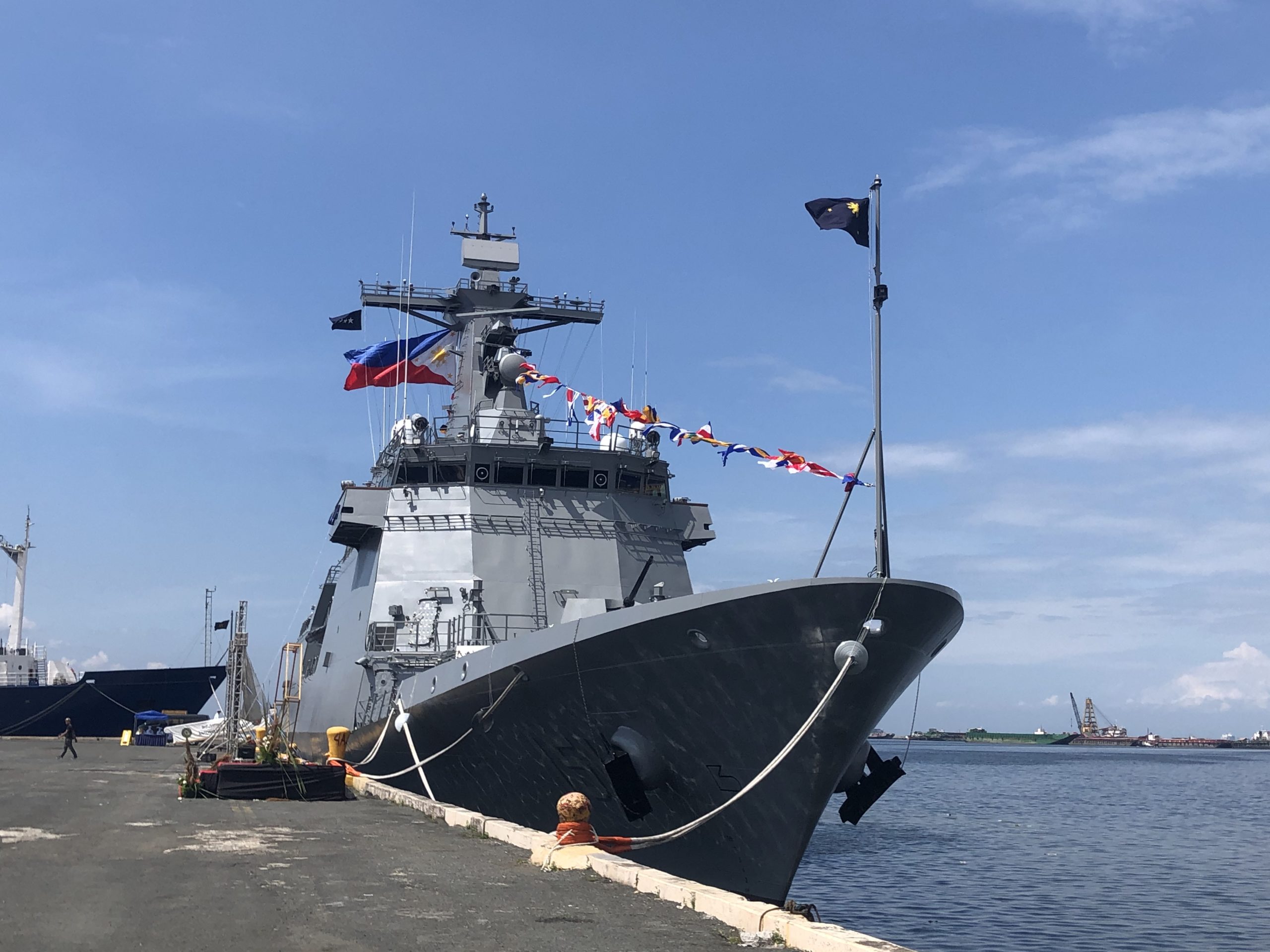PH’s second brand new, missile-capable warship enters naval service

The Philippine Navy commissions its second missile-capable frigate, BRP Antonio Luna (FF-151), on Friday in what Defense Secretary Delfin Lorenzana calls “the advent of our future fleet towards having a modernized and multi-capable” Navy.
MANILA, Philippines — The Philippine Navy officially commissioned its second missile-capable frigate, BRP Antonio Luna (FF-151), on Friday, in what Defense Secretary Delfin Lorenzana called as “the advent of our future fleet towards having a modernized and multi-capable Navy.”
NOW: Commissioning and christening of BRP Antonio Luna (FF-151), the Navy’s second missile-capable frigate built by South Korea’s Hyundai Heavy Industrieshttps://t.co/tW1Kj9BQCn pic.twitter.com/phTNqpCEPA
— Frances Mangosing 🇵🇭 (@FMangosingINQ) March 19, 2021
“Malaki ang kahalagahan nito dahil noong una, noong nakaraang panahon, wala man lang tayong pang-patrolya sa West Philippine Sea. Noon kasi pang-patrolya natin yung mga World War 2 vintage,” Lorenzana said on the sidelines of the commissioning ceremony at South Harbor.
(This is significant because, in the past, we didn’t have ships that can patrol the West Philippine Sea. We used to patrol with World War 2 vintage vessels.)
“Kung binibigyan tayo ng barko ng Amerikano, tinatanggal muna nila ang armas so ito ‘yung medyo capable. Pwede na natin ‘dyan iharap sa mga kung sino man ang mananakop sa West Philippine Sea,” he said.
(Whenever the Americans donated their ships, they removed the weapons first, so this one is relatively capable. We can now face invaders in the West Philippine Sea.)
Lorenzana looked back at the time when he was an Army junior officer and he was asked to discuss the need to modernize the Philippine Navy.
“It doesn’t take a genius to see that this country needs a strong Philippine Navy. You know we are an archipelago and we need the Navy very much then and now,” he said.
The BRP Antonio Luna is the second of the two missile-capable ships built by South Korean shipbuilder Hyundai Heavy Industries for P16 billion. Its sister ship, the BRP Jose Rizal (FF-150), entered service last year.
Launched in November 2019 in Ulsan, South Korea, the Antonio Luna is a 2,600-ton, 107.5-meter warship capable of anti-air, anti-surface, anti-submarine, and electronic warfare.
The Navy said Friday’s ceremony marked the official completion of the frigate acquisition project. Other dignitaries at the event were South Korean ambassador Kim In Chul, Armed Forces chief Lt. Gen. Cirilito Sobejana, acting Army chief Jose Faustino Jr., and other top Navy officials. Descendants of Antonio Luna were also invited.
Lorenzana recalled that there was a time that he thought the frigate acquisition project would “never materialize” because of several problems, which included the selection of the combat management systems.
The issue drew national attention and even prompted the Senate and House of Representatives to conduct hearings.
“But I’m glad we hurdled all those problems and now we are here looking at the fulfillment of the dream of not only the Navy but also the entire country,” he said.
“Ito ngayon, the Hyundai Heavy Industries will emplace the all the CMS yung combat management system yan in due time, wala pa ano? Meron na compatible,” Lorenzana said, likely referring to the Link 16 requirement, which was one of the contentious issues of the frigate acquisition project.
Earlier, the South Korean government gave a sovereign guarantee to support the shipbuilder to fulfill the Link 16 requirement for the CMS.
More ships needed
Lorenzana said they are eyeing to acquire more brand new vessels in the future, including offshore patrol vessels (OPV), corvettes and landing docks.
The Navy has started decommissioning its World War 2 assets, even without immediate replacements, to give way to its modern fleet.
“Ang nasa forefront ng procurement (for the OPV) is the Australian Austal which is in Cebu. Meron silang branch ‘dyan na gumagawa din ng barko so kung matuloy maganda rin yan sa ekonomiya,” Lorenzana said.
(The Australian Austal in Cebu is at the forefront of the procurement. They have a branch there, so if it pushes through it will help our economy.)
“I hope we can sign the contract before the end of the President’s tenure. Medyo matagal ‘yung proseso niya so hindi niya na makikita yung OPVs, pagkatapos na niya (The process is quite long, so it would not be delivered under his term. It will happen later),” he said.